ChristianHak
Forum Replies Created
- AuthorPosts
-
A minor improvement would be to add some support between the ends of the “U” (i.e. make it structurally more like an “O”). This would reduce the chance that the plinth breaks due to its own mass during a hard impact. I’m always a bit surprised by how brutal shipping can be. When I pack something for shipping, I imagine it being dropped off a moving vehicle, then sat on by a toddler. ? Glitch
Hi Glitch,
Yes, shipping can be brutal! I was contemplating doing a few drop and bump tests but I didn’t want to destroy some perfectly good packaging (the honeycomb cardboard isn’t the cheapest) haha.I will take on board your suggestion and incorporate a support between the open end of the plinth by gluing in a spacer.
Very nice indeed. For shipping considerations, it would also be good to know where you ship from. Martin
Hi Martin,
These will be shipped from Brisbane, Australia. Currently, the best price I can find for shipping is ~$45 (Australian dollars) which includes tracking. This is roughly 30USD, 30EUR, 24GBP.
I also thought I would note that I studied furniture making in Copenhagen, Denmark and make fine furniture for a living, so I will make sure that these are perfect before I send them off to the wider world 🙂
It would be useful if you could show sample wood grains/colours etc. When my 4000 has been working a while without issue ? I’d be interested if they are also compatible with the 4000.
I’ll put together some samples of the different timber options.
I’ll be making plinths for both the 4000 and the 4002. From my understanding they are slightly different lengths. Would you mind measuring the outside lengths on the front and side of your 4000? I don’t currently have a 4000 on hand to measure. Thanks!
Let me know if you have any questions or suggestions!
This is a detail diagram of the classic joint.
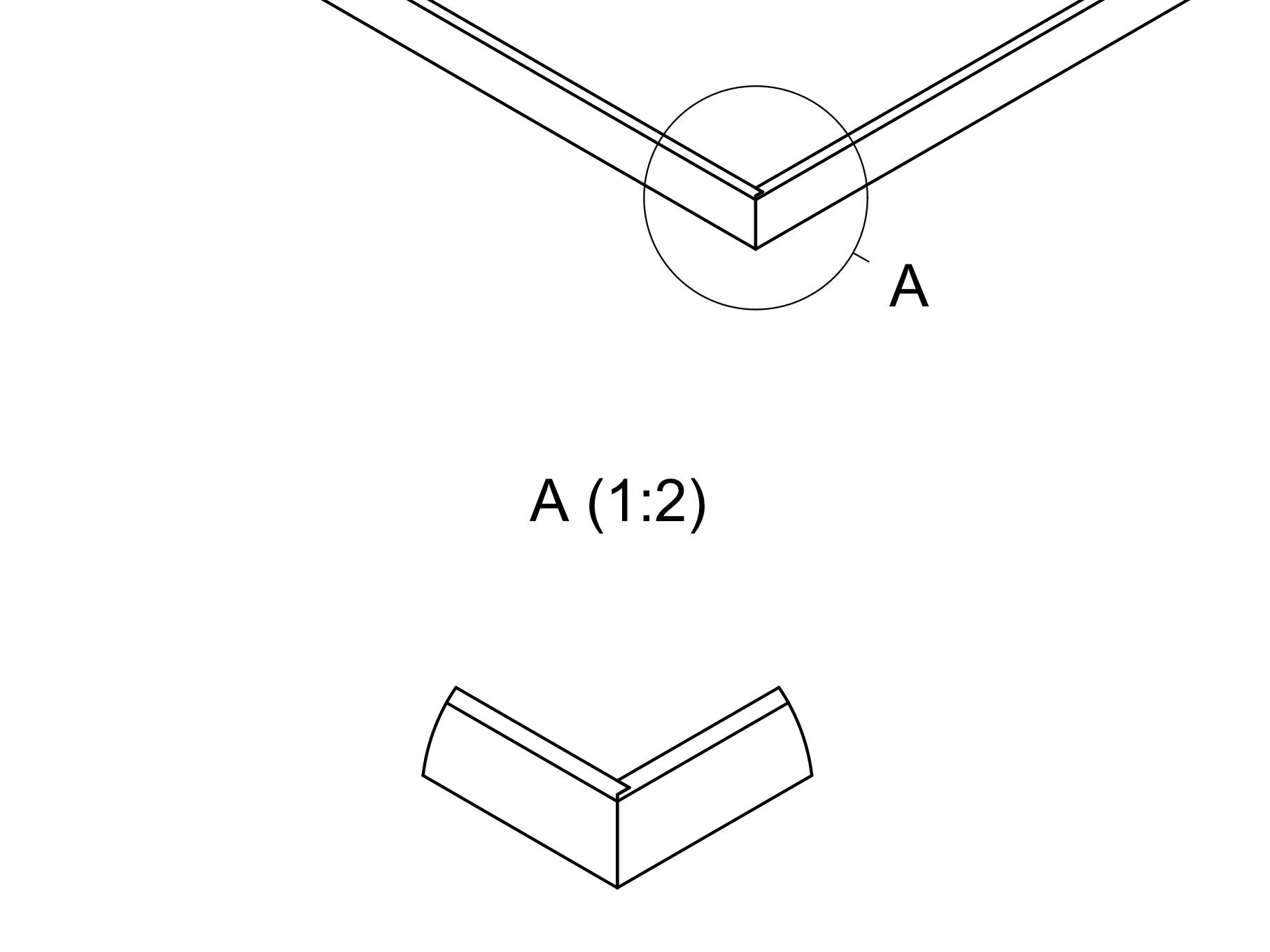
And this is the 4000c joinery. Note, this joint has an extra rebate as well as splines.
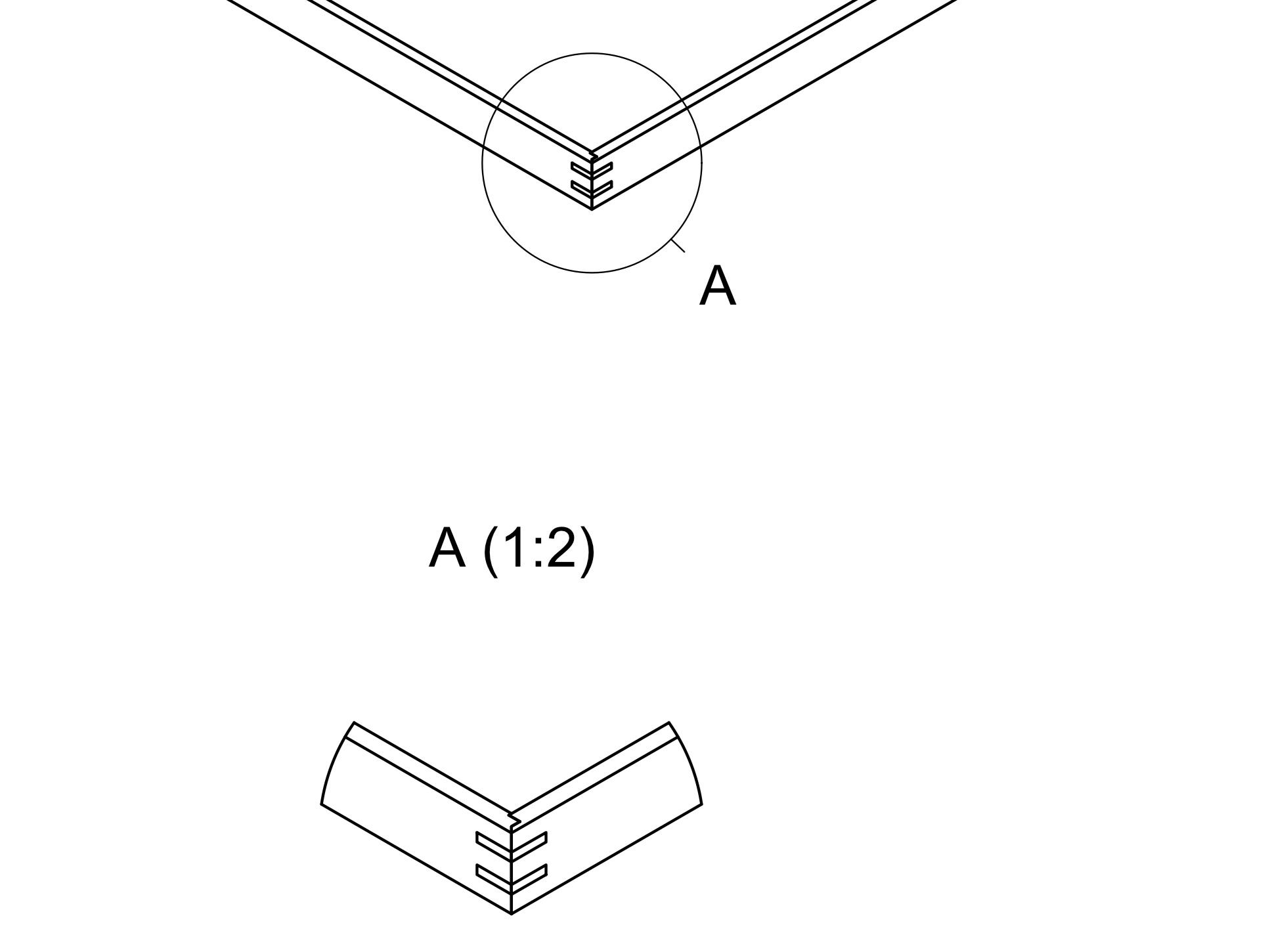
After a few people have shown interest in the timber plinths, I’ve decided to make them available to others to buy.
I spent some time researching and working out a way to send such a fragile piece, and I think I have found a good solution. I will custom make the boxes which should be able to withstand international shipping. The aim was to make a box that doesn’t compress or twist and which weighs less than 1kg in total to make shipping more affordable.
The plinths will be made to order, in solid timber, and come with 3M industrial strength double sided adhesive tape, instructions on how to fix the plinth to the metal fixtures, and a spare sachet of hardwax oil finish for future maintenance.
I currently have access to oak, walnut, ash, maple and cherry, but depending on demand, I could possibly source mahogany, teak and potentially rosewood (Brazilian rosewood seems almost impossible to get, but Indian rosewood might be an acceptable alternative).
I will offer two different joints; the classic joinery as per the original plinths, or the Beogram 4000c joinery which is slightly different and has splines.
Currently I will use Osmo hardwax oil to finish the timber, but am open to UV stable lacquer, soaped finish, and other finishes if requested.
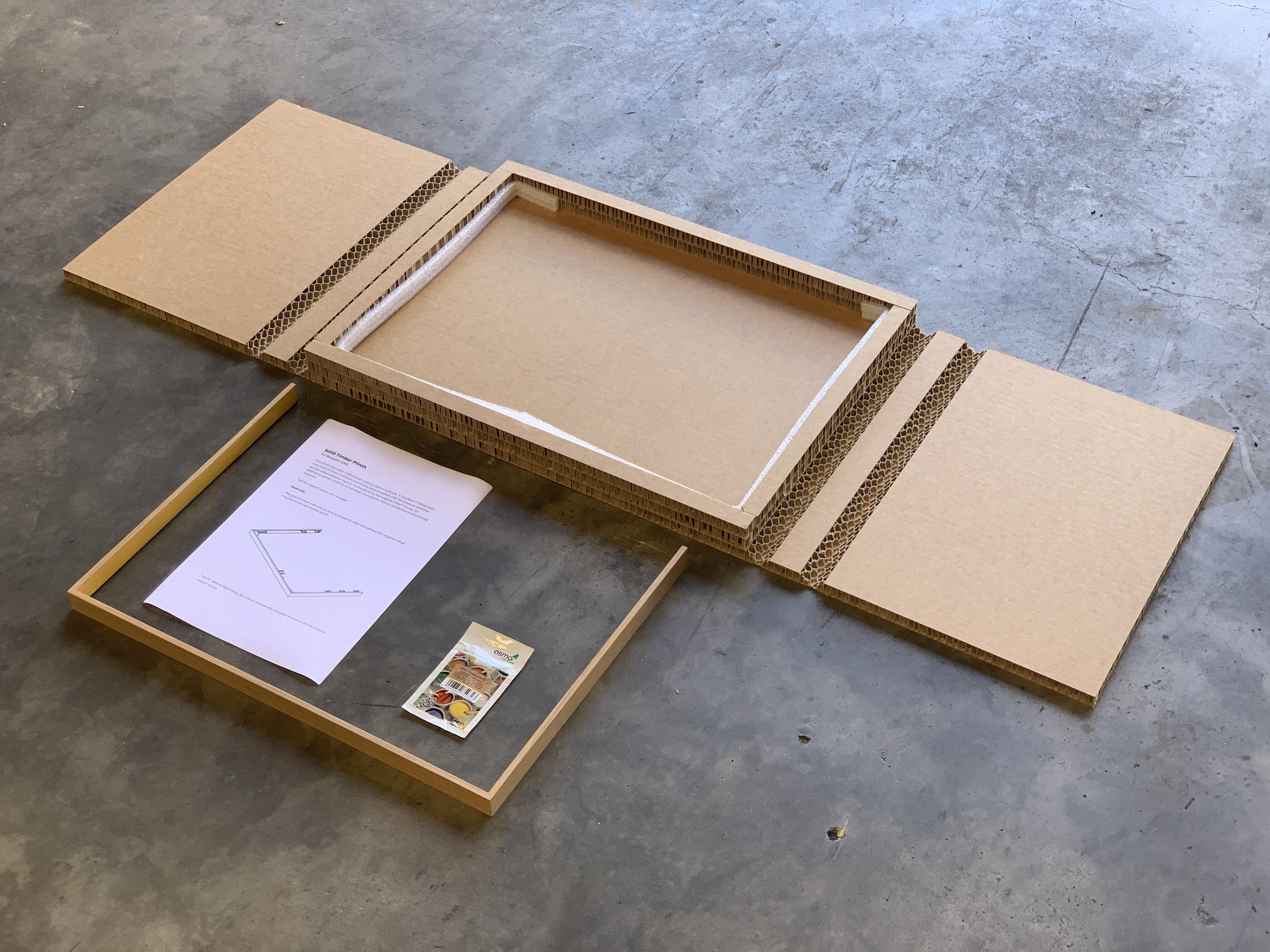
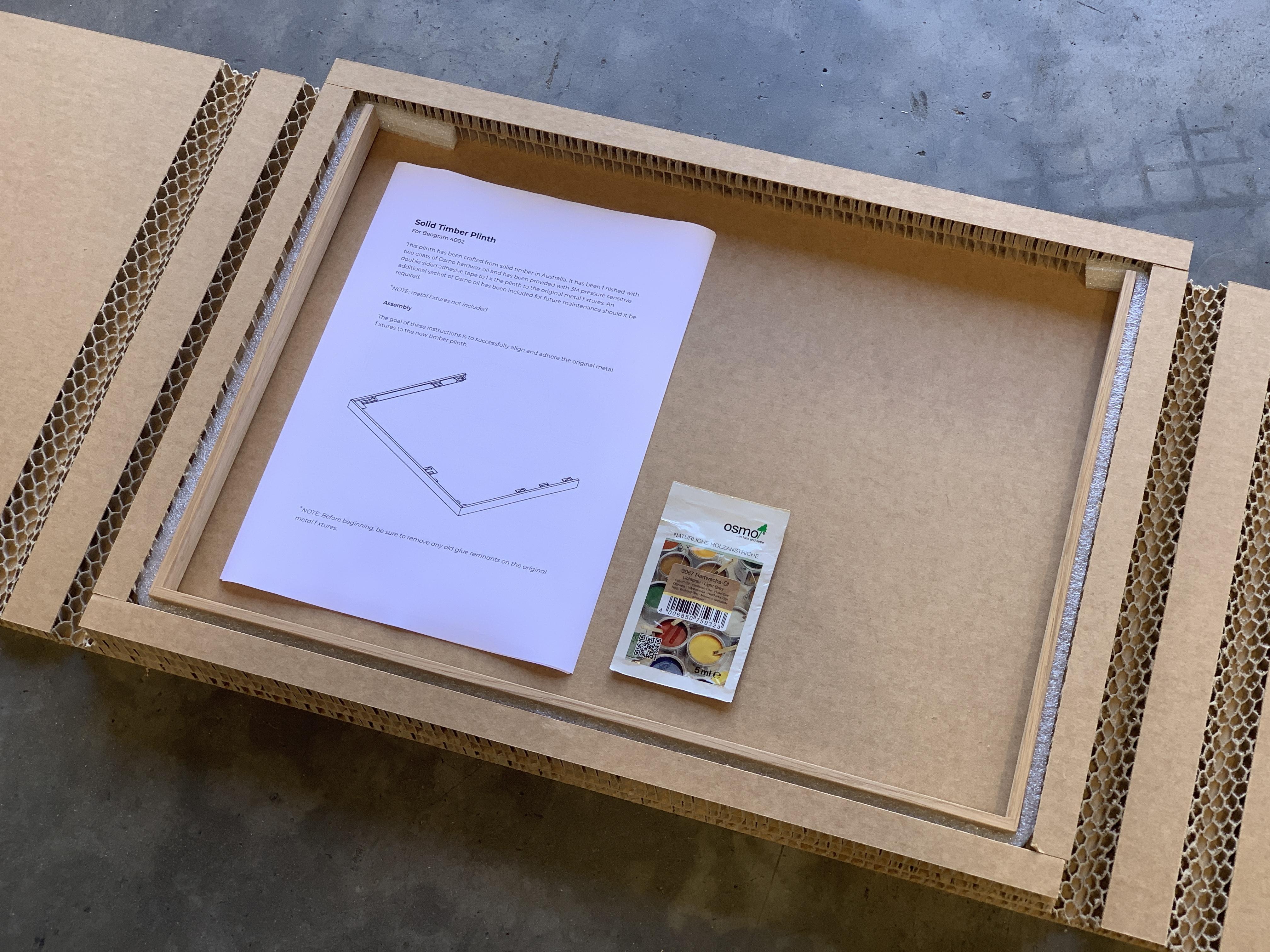
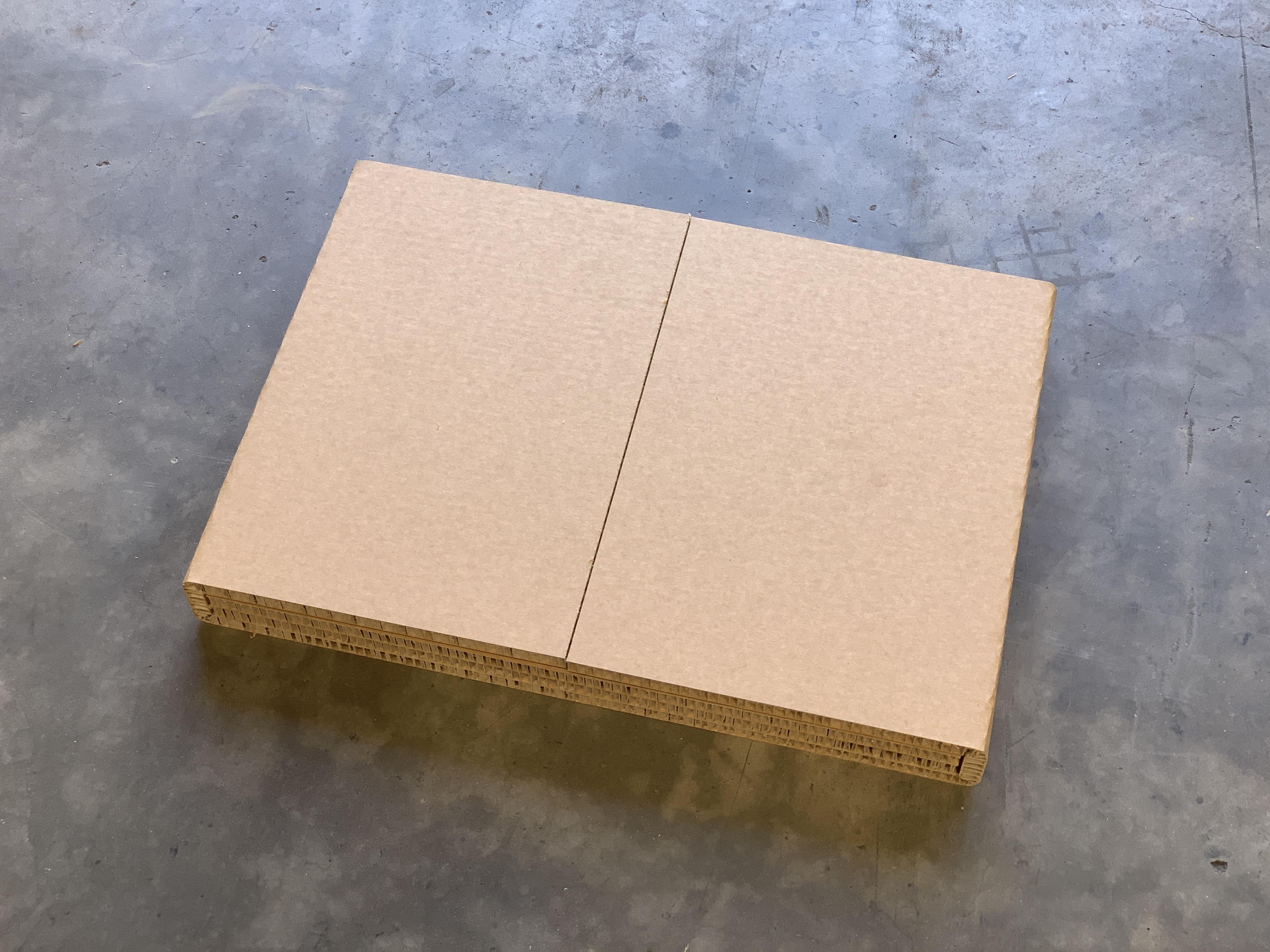
Your joint work is much better than B&O 4000c recreation wood trim joint.
Have you seen a 4000c in the flesh? Does anyone on this forum have a 4000c or know of anyone that has one? I have a few questions for them regarding the upgrades.
Also, has anyone had their 400x serviced with the upgrade kit?
Thanks for the kind words!
I would be open to making these for sale.
I was thinking that I could provide them unassembled (not glued together) as that way they can be shipped efficiently in a poster tube.
If shipping them assembled, it would cost a bit more for shipping, packaging and labour.
If anyone is interested, I can make them in walnut, oak, ash and can likely source rosewood, teak and other timbers.
Next step was to disassemble everything from the chassis and the back piece of the dust hood. The current condition is horrible. The previous owner had made an attempt at starting a restoration and it seem he had tried to sand off the paint.
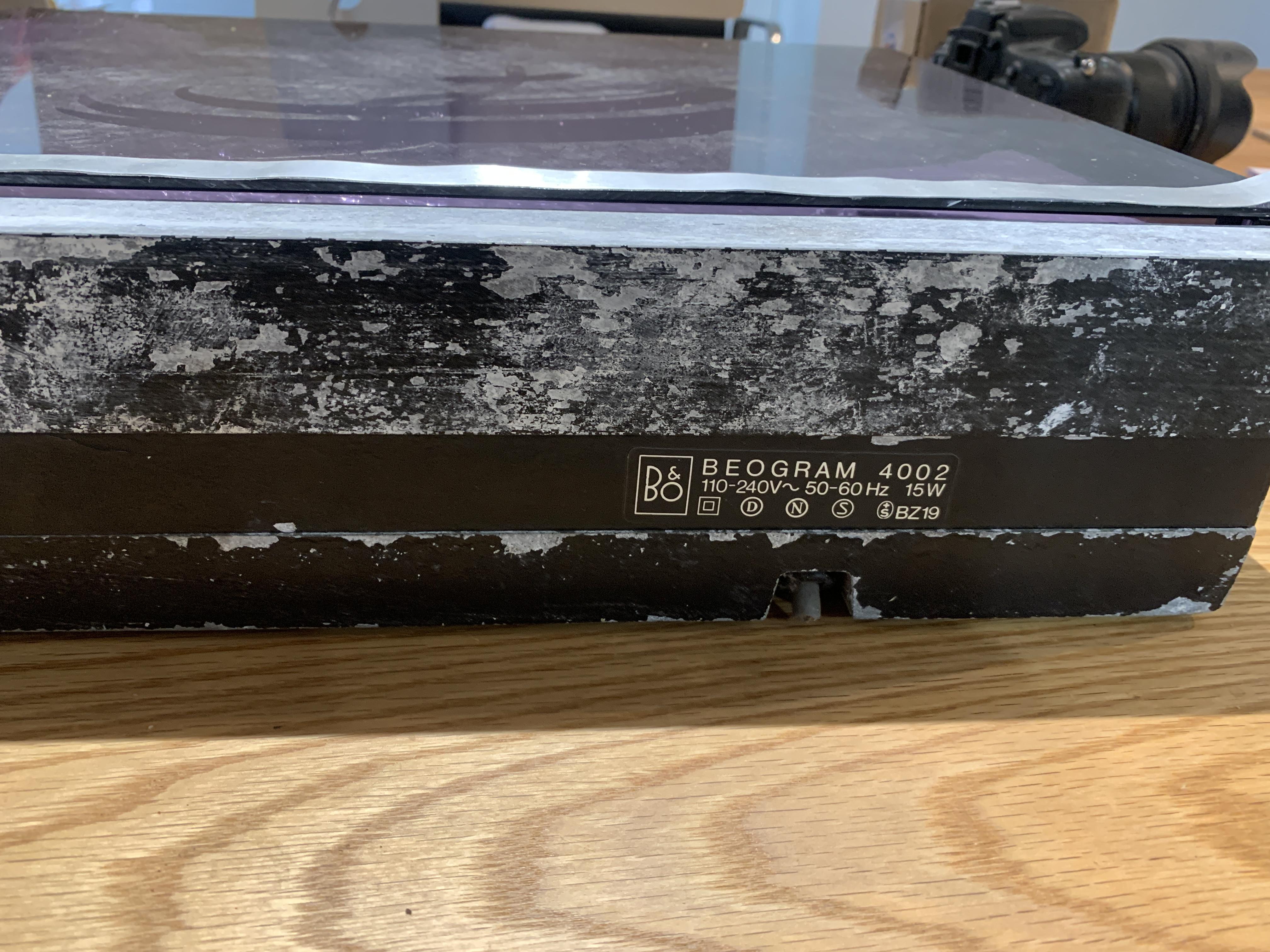
It was very interesting disassembling the turntable. I enjoy seeing how things are put together and work. I made sure to label everything and take a million photos of how it goes back together. I removed the old sticker labels so that I can adhere them again after it has been refinished.
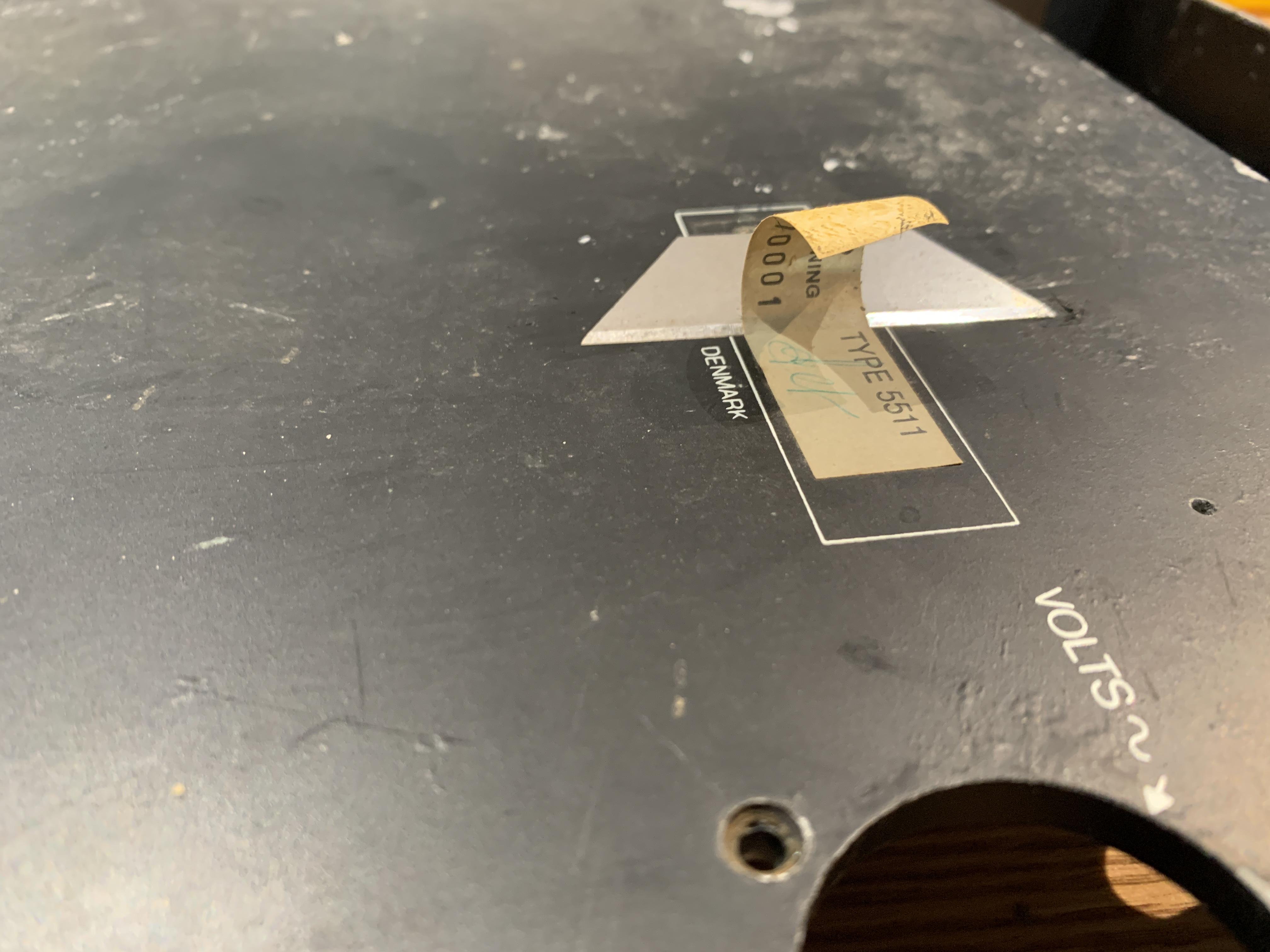
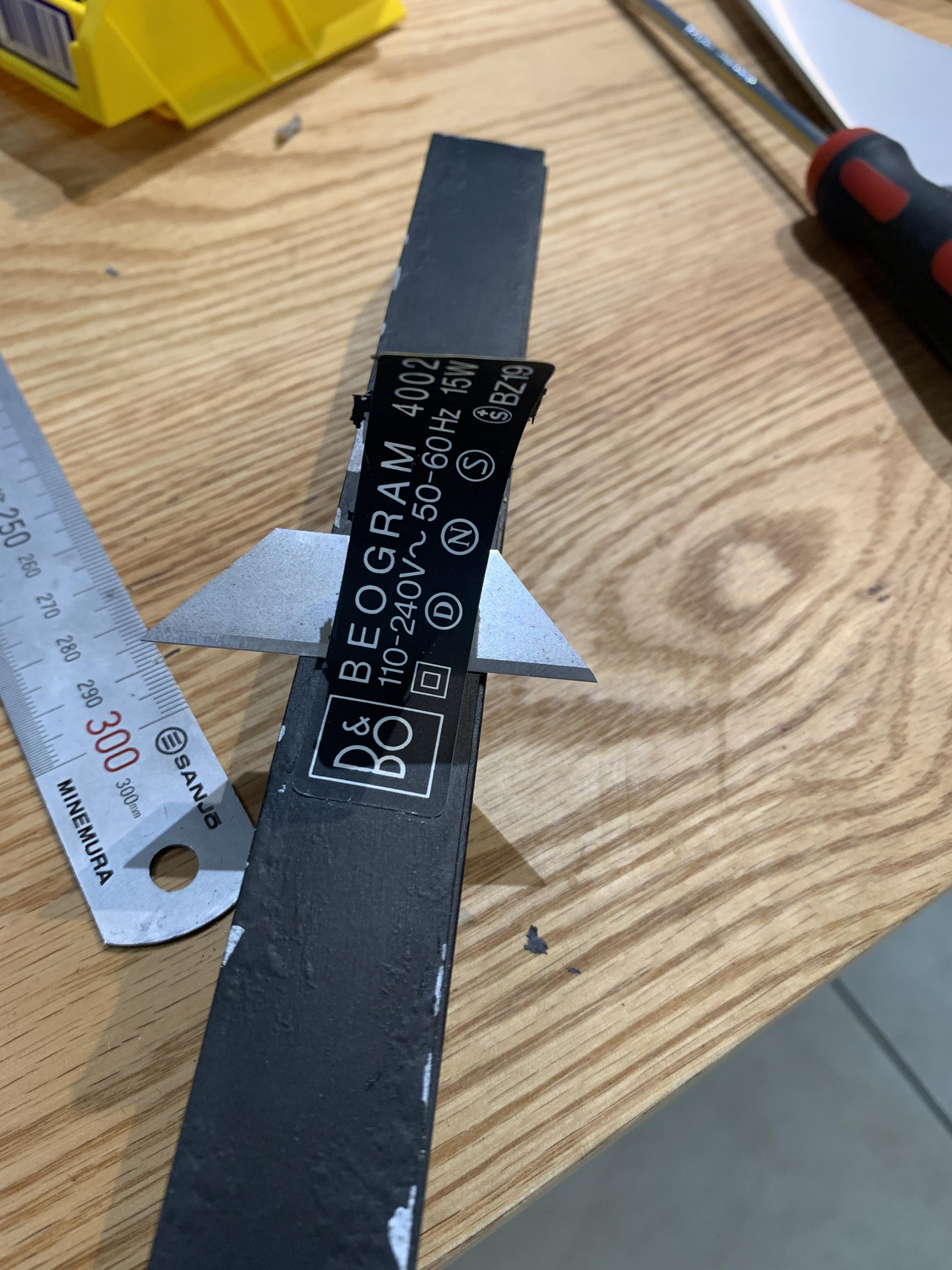
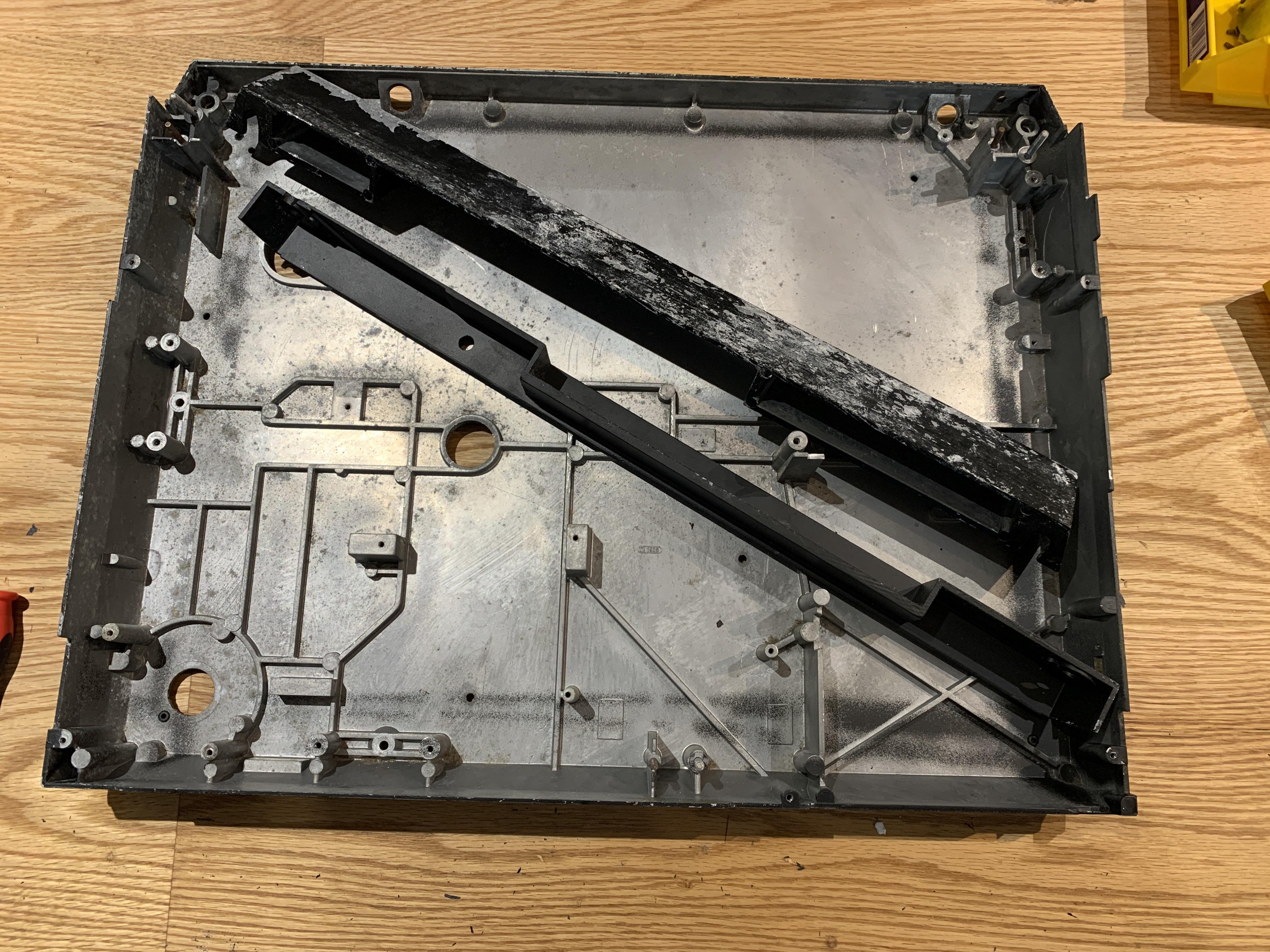
My plan is to have these pieces sand blasted to remove the old paint before refinishing it myself. I have sent off a few emails to get some quotes on the sand blasting. Has anyone got any experience with restoring the chassis?
First step was to remove the plinth to make a new one. The original was chipboard with rosewood veneer. I assume it has been exposed to water at some point as the chipboard was swollen, and the metal was rusted in parts.
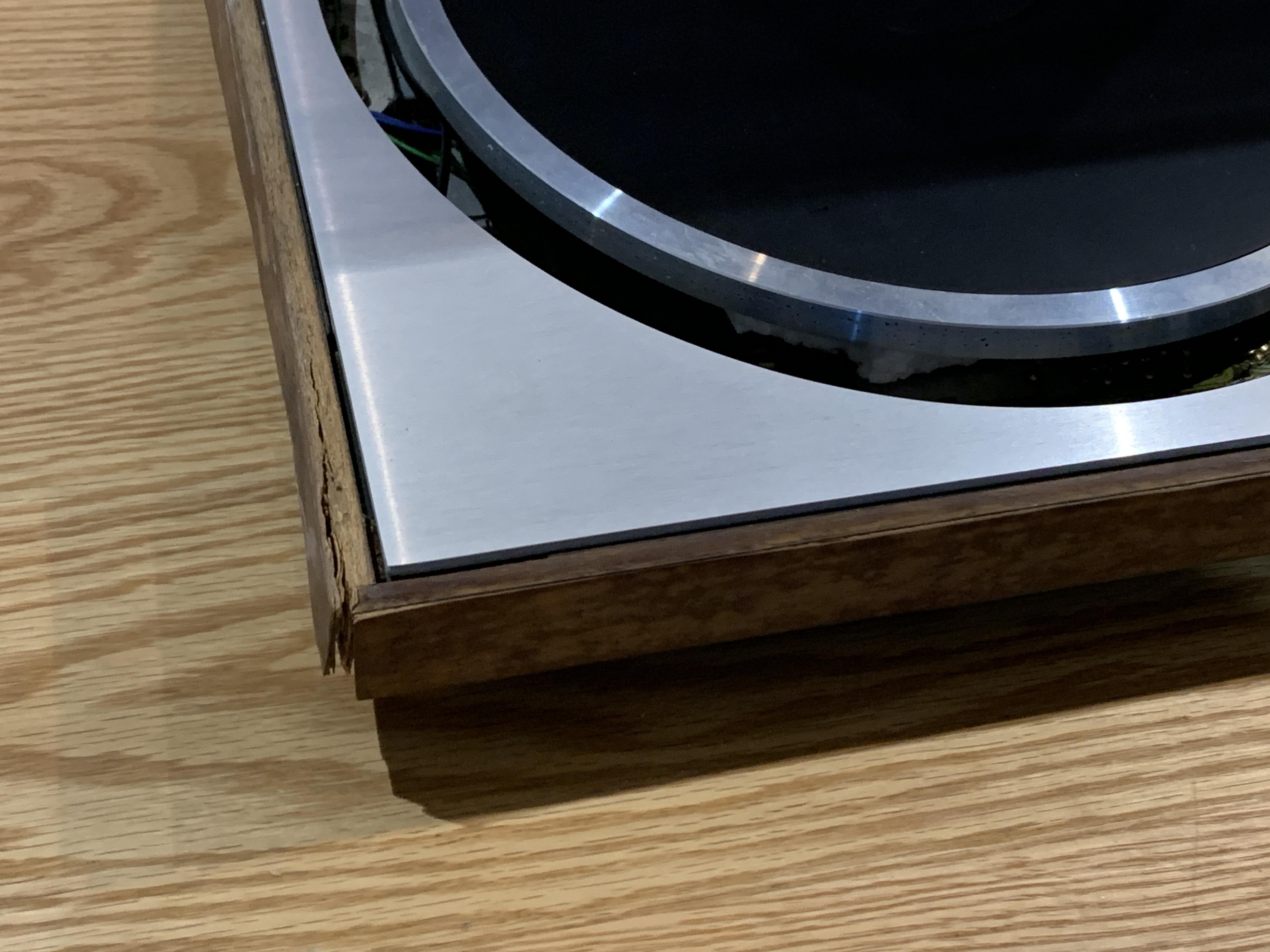
I decided to remake the plinth in oak to match the furniture at home.
I milled a few oversize pieces of oak and let them sit for a few days to relieve any tension in the timber before milling them to their final size. I milled up a few extra pieces in case I made any mistakes and so I can test a few different finishes. Each strip of timber will make one plinth so that the grain will be continuous.
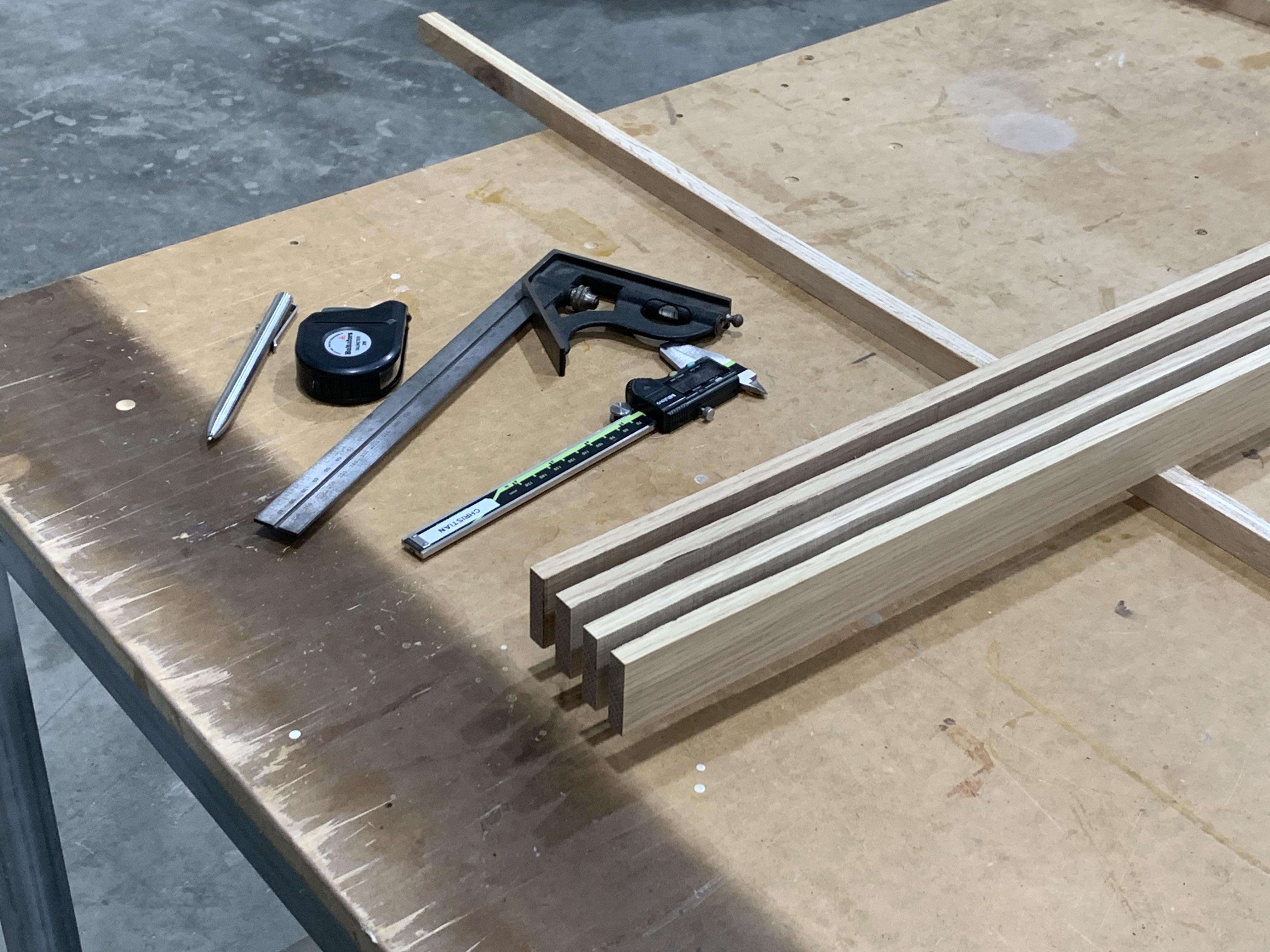
I have seen a few restored plinths made with a mitre and splines but I think I prefer the original joinery so decided to go with that instead. I programmed the CNC to do all the joinery. I had to make a vacuum hold-down jig as the parts are so small and difficult to secure when milling.
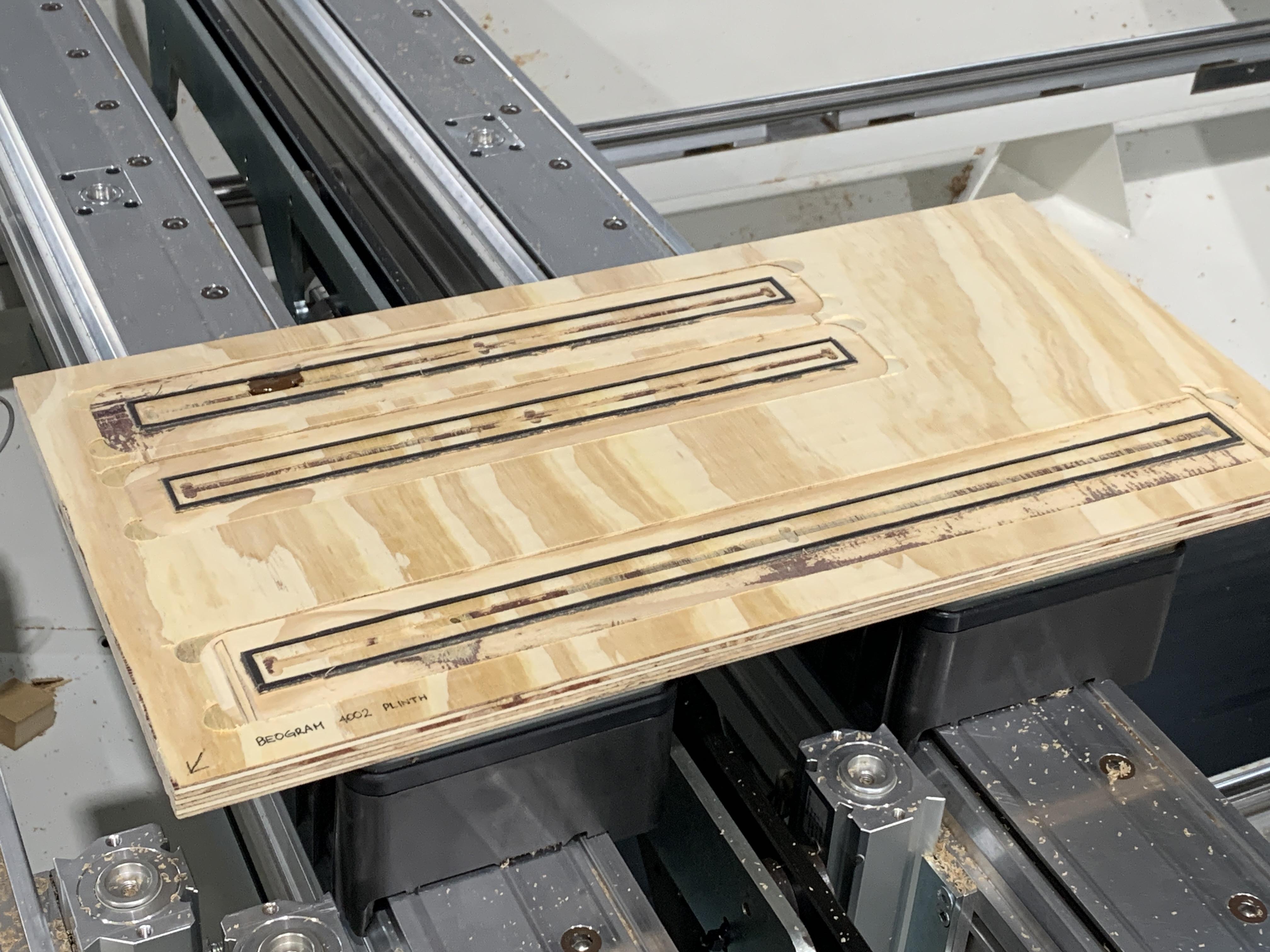
The joinery ended up really well. The small details look great and are a nod to the original. This is what it looked like before gluing.
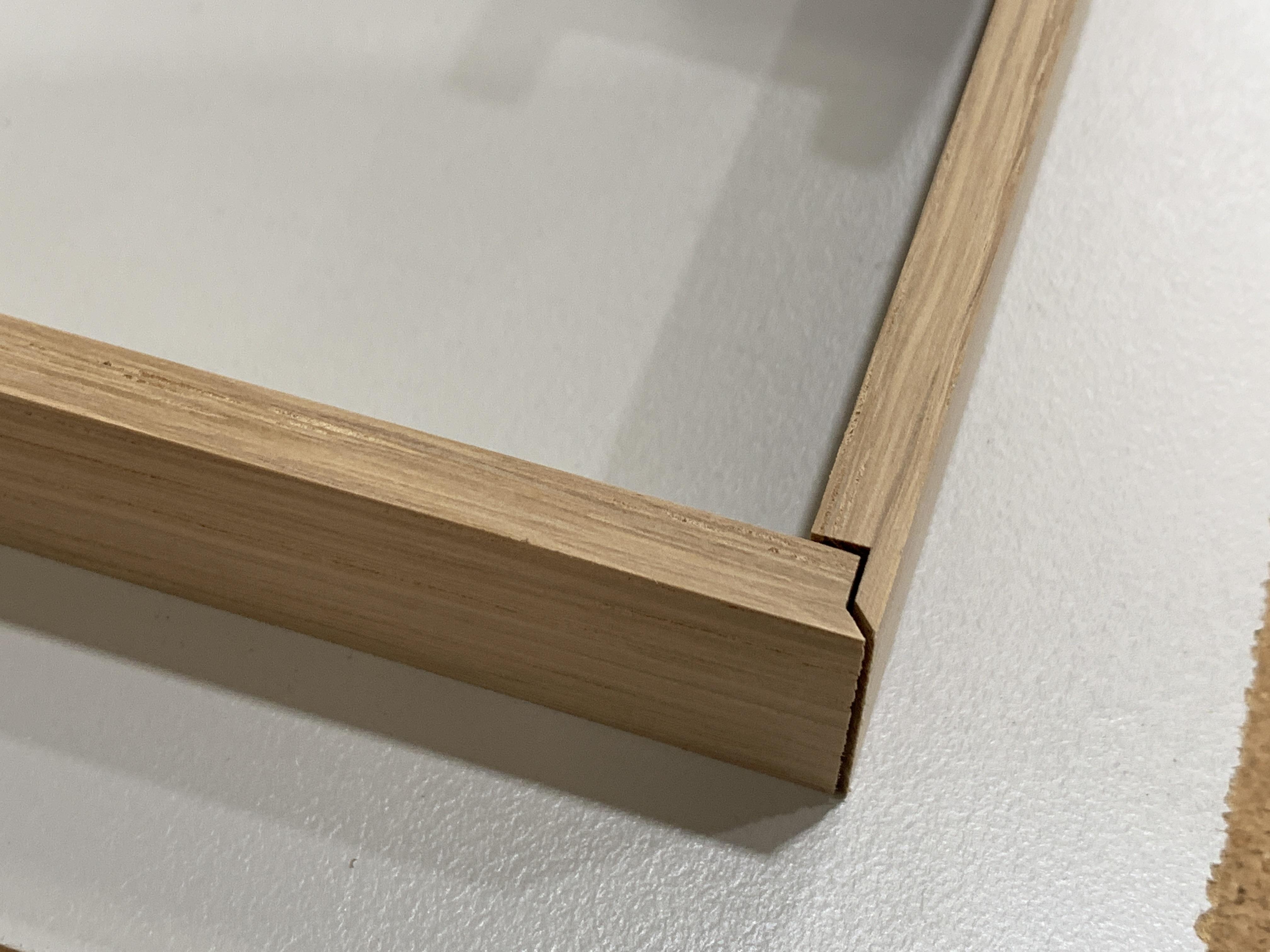
Here is the end result. I have oiled one (the darker looking one). I will spray the other one with lacquer. Afterwards I will decide which one I like the best.
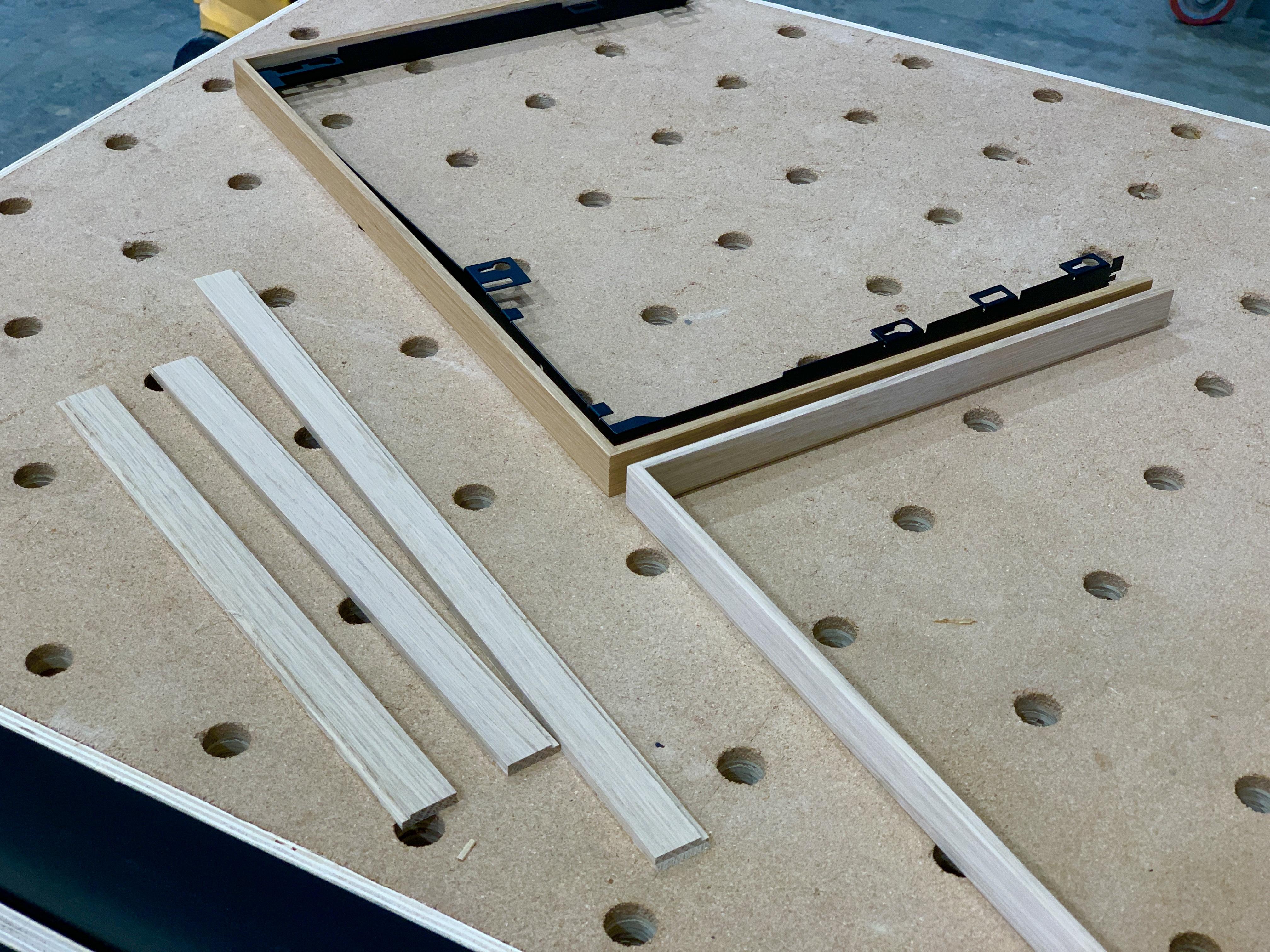
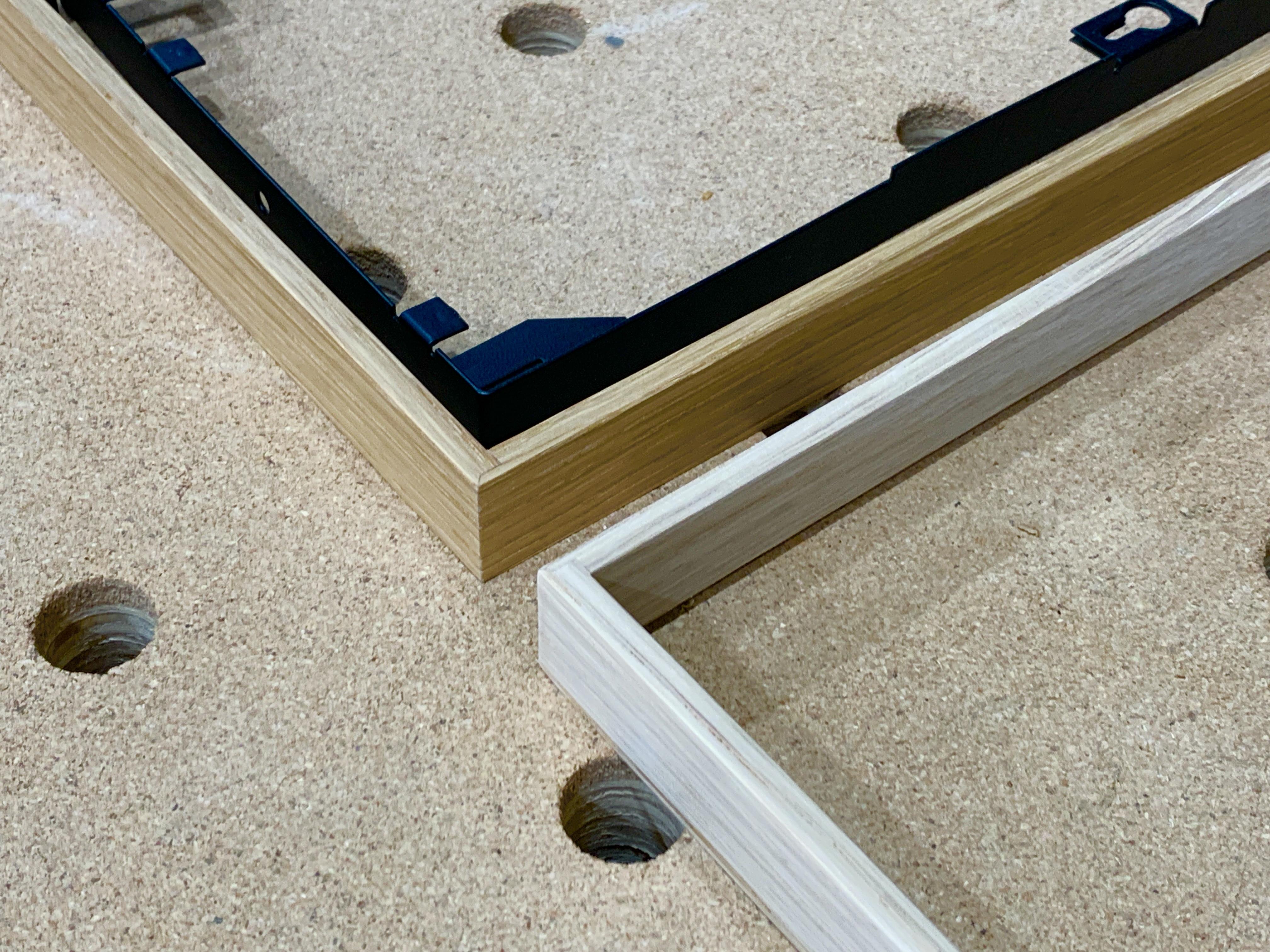
The metal fixtures had some chipped paint and surface rust so I removed the rust, sanded them down and refinished them with flat black paint. They turned out great!
Hey mate,
How much are you selling your RIAA upgrade for?
Mvh,
ChristianWhat is it about the 4000sc’s wiring that you find desirable? I have custom-wired several hundred Beogram 4000x’s in my time so could provide guidance if you’d like.
I would like to the change signal cable to RCA, and I quite like to the look of the black fabric cable – it looks robust and elegant. It may be a bit superficial of me, but the unparalleled design of the Beogram 400X is what drew me to them and in my opinion, the original grey cables are the only part of the turntable that divulges its age. The Beogram can sit beside a modern Beoplay A9 and look just as sleek, modern, and timeless.
Which country is it located in?
Hi Gerard,
I would suggest the Beogram 4002. It is as beautiful to listen to as it is to look at. From my understanding, there are plenty of them out there in the wild and there is a lot of resources in regards to maintenance and repairs. I was lucky and bought my 4002 in excellent condition for about 300EUR, but here in Australia, I have seen them sell for upwards of 1200EUR. Condition and price seems to vary a lot from seller to seller.
I only have a 4002 and a 4000 so I can’t speak for any other of the series in terms of series to avoid. But the 400X series is by far the most beautiful record player ever made.
Best of luck!
Christian
Thanks for the reply, Mark. I will take your advice.
Anyone Beogram enthusiasts here from Brisbane, Australia?
- AuthorPosts
